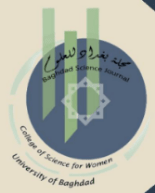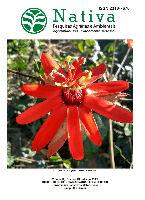
Science Diliman
Scope & Guideline
Exploring New Frontiers in Science and Society
Introduction
Aims and Scopes
- Biodiversity and Conservation:
The journal features studies on the biodiversity of various species, particularly in the Philippine context, and emphasizes conservation efforts and ecological assessments. - Agricultural and Environmental Sciences:
Research on the impact of environmental factors on agriculture, including studies on heavy metals in urban farming and the effects of probiotics on aquaculture, highlights the journal's focus on sustainable practices. - Microbial and Antimicrobial Research:
The journal publishes works on the isolation and characterization of microbial species and their antimicrobial properties, reflecting a commitment to understanding microbial interactions and applications in health. - Genetic and Phylogenetic Studies:
Papers exploring genetic mapping, phylogeography, and phylogenetic placements demonstrate the journal's interest in genetics and evolutionary biology. - Chemical and Pharmaceutical Sciences:
Research on chemical derivatives and their biological activities showcases the journal's dedication to pharmaceutical sciences and the development of new therapeutic agents.
Trending and Emerging
- Impact of Pollution on Agriculture:
The assessment of heavy metals in urban farming produce and the effects of probiotics on aquaculture highlight a growing concern for pollution's impact on food safety and environmental health. - Conservation Genetics and Phylogenetics:
With papers on phylogeography and genetic mapping of species, there is an emerging trend towards incorporating genetic tools in conservation efforts, emphasizing the importance of genetic diversity in species preservation. - Interdisciplinary Research Approaches:
The integration of various fields, such as combining microbial research with agricultural applications, reflects a trend towards more interdisciplinary studies that address complex scientific problems. - Focus on Antimicrobial Agents:
The increasing research on antimicrobial properties of various compounds indicates a rising interest in combating antibiotic resistance and discovering new therapeutic agents.
Declining or Waning
- Traditional Agricultural Practices:
Earlier publications included more extensive research on traditional agricultural methods. Recent titles indicate a shift towards modern techniques and environmental impacts, suggesting a waning interest in conventional practices. - Physical Geography and Landform Studies:
There has been a noticeable decrease in studies focused on physical geography or landform characteristics of specific regions, which might indicate a pivot towards more biological and ecological research themes. - Chemical Analysis of Non-Antimicrobial Compounds:
The reduction in papers focusing solely on chemical compositions unrelated to antimicrobial properties suggests a declining interest in this area, as the journal appears to prioritize studies with direct health implications.
Similar Journals

JOURNAL OF THE NATIONAL SCIENCE FOUNDATION OF SRI LANKA
Catalyzing Innovations in Science and TechnologyJOURNAL OF THE NATIONAL SCIENCE FOUNDATION OF SRI LANKA, with ISSN 1391-4588 and E-ISSN 2362-0161, is a respected academic publication disseminated by the National Science Foundation of Sri Lanka. Operating since 1999, this journal encompasses a broad spectrum of multidisciplinary research, currently positioned in the Q3 category and ranking #101 out of 171 in its field, indicating its significant contribution to advancing knowledge across various scientific domains. With an ambition to foster local and international scholarly dialogue, the journal encourages submissions that address fundamental and applied aspects of science pertinent to Sri Lanka and beyond. Though it operates under a conventional access model, the journal is committed to promoting high-quality, peer-reviewed articles that are vital for researchers, professionals, and students aiming to stay at the forefront of scientific advancements in the region.

REVISTA CHILENA DE HISTORIA NATURAL
Empowering Ecological Research for TomorrowREVISTA CHILENA DE HISTORIA NATURAL, published by the SOCIETAD BIOLOGIA CHILE, is an esteemed open-access journal dedicated to the fields of Agricultural and Biological Sciences as well as Environmental Science. With an ISSN of 0716-078X and an E-ISSN of 0717-6317, the journal has maintained an impactful presence since its inception in 2000, offering unrestricted access to vital research that influences the biodiversity and ecological initiatives in the region and beyond. Positioned in the Q2 quartile for Agricultural and Biological Sciences and Q3 for Environmental Science as of 2023, REVISTA CHILENA DE HISTORIA NATURAL exemplifies its commitment to high-quality and influential research, evidenced by its respectable ranking in Scopus—89th percentile for Agricultural and Biological Sciences and 131st in Environmental Science. Operated out of Santiago, Chile, and covering a wide range of topics with a converging publication timeline from 2002 to 2024, this journal serves as a crucial resource for researchers, professionals, and students looking to deepen their understanding of natural history and its implications for future ecological preservation.

Journal of Biological Research-Thessaloniki
Connecting Researchers to Transformative Biological Insights.Journal of Biological Research-Thessaloniki, published by Aristotle University of Thessaloniki, is a distinguished academic journal committed to advancing the fields of Agricultural and Biological Sciences and Biochemistry, Genetics and Molecular Biology. As an Open Access journal since 2004, it provides a platform for the rapid dissemination of innovative research that spans diverse biological disciplines. With an impact factor that situates it in the Q2 category for Agricultural and Biological Sciences and Q3 for Biochemistry, Genetics and Molecular Biology as of 2023, the journal demonstrates a significant contribution to its respective fields. Located in Thessaloniki, Greece, it serves a global audience of researchers, professionals, and students eager to access quality scientific content. The journal is dedicated to publishing original research articles, reviews, and critical commentaries, encouraging collaboration and dialogue amongst scientists dedicated to the frontiers of biological research.

Baghdad Science Journal
Empowering Scientific Discovery Across DisciplinesThe Baghdad Science Journal (ISSN: 2078-8665, E-ISSN: 2411-7986), published by the COLL SCIENCE WOMEN, UNIVERSITY OF BAGHDAD, is a pivotal peer-reviewed open-access journal dedicated to a diverse array of scientific disciplines. Since its inception in 2004, it has established itself as a leading platform for disseminating innovative research in areas including Agricultural and Biological Sciences, Biochemistry, Genetics and Molecular Biology, Chemistry, Computer Science, Mathematics, and Physics. The journal has consistently achieved commendable rankings in the Scopus database, reflecting its commitment to quality and relevance in academic research. With a Q2 classification in Agricultural and Biological Sciences and Q3 classifications in several other categories as of 2023, the journal has become an invaluable resource for researchers, professionals, and students eager to contribute to scientific advancement. Based in Iraq, the Baghdad Science Journal serves as a bridge for global scientific communication, encouraging collaboration and providing access to groundbreaking discoveries.

BIOLOGICAL RESEARCH
Connecting global minds in biological discovery.BIOLOGICAL RESEARCH is a prestigious, peer-reviewed journal published by the Société de Biologie de Chile, dedicated to advancing the fields of Agricultural and Biological Sciences, Biochemistry, Genetics, and Molecular Biology, and Medicine. With an impressive ranking in the top quartile (Q1) in these categories as of 2023, this journal maintains high academic standards and visibility, making it a vital resource for researchers and professionals alike. Operating under an Open Access model since 2013, it ensures that research findings are freely accessible to a global audience, promoting the dissemination of knowledge and collaboration across disciplines. With a publication history dating back to 1992 and continued updates until 2024, BIOLOGICAL RESEARCH serves as a crucial platform for innovative research that impacts both scientific and healthcare communities. The journal’s commitment to quality and relevance is evidenced by its competitive performance in Scopus rankings, further solidifying its role as a leading journal within the biological sciences.

Beni-Suef University Journal of Basic and Applied Sciences
Fostering collaboration through open-access research.Beni-Suef University Journal of Basic and Applied Sciences, published by SpringerNature, is a premier open-access journal that has been disseminating significant scientific research since 2013. With an E-ISSN of 2314-8543, this journal is situated in Germany and plays a crucial role in fostering scholarly communication across various disciplines, particularly focusing on Agricultural and Biological Sciences, Medicine, and Pharmaceutical Science. As of 2023, it holds notable rankings in Scopus—ranked #41 in Agricultural and Biological Sciences, #135 in Medicine, and #80 in Pharmaceutical Science—emphasizing its reputation and impact in these fields. With a Q2 classification in both Agricultural and Biological Sciences and Pharmaceutical Science, as well as a Q3 designation in Medicine, the journal is positioned as a valuable resource for researchers, professionals, and students seeking to explore the latest advancements and applications in basic and applied sciences. The journal’s commitment to open access ensures that groundbreaking research is accessible to a global audience, thereby fostering innovation and collaboration in the scientific community.

Applied Biological Research
Bridging Theory and Practice in Biological ResearchApplied Biological Research is a dynamic journal issued by the CENTRE ADVANCEMENT APPLIED SCIENCES, specializing in the interdisciplinary fields of biochemistry, genetics, and molecular biology. With its ISSN 0972-0979 and E-ISSN 0974-4517, this journal serves as a critical platform for the dissemination of peer-reviewed research that addresses pressing challenges and innovations within biological sciences. Although currently it does not adopt an Open Access model, it is dedicated to fostering academic discourse through rigorous publication practices. The journal's impact is underscored by its Scopus rankings, which place it in the 4th and 2nd percentiles in respective categories, emphasizing its emerging influence in the scientific community. Covering research from 2020 to 2024, Applied Biological Research is positioned as an essential read for researchers, professionals, and students seeking to stay at the forefront of biological research and application. Based in the beautiful region of Jammu & Kashmir, India, this journal is committed to advancing applied sciences through innovative research and outreach.

Acta Brasiliensis
Illuminating Brazil's Cultural Landscape with Academic RigorActa Brasiliensis is an esteemed academic journal published by the Federal University of Campina Grande. With an ISSN of 2526-432X and an E-ISSN of 2526-4338, this open access journal has been fostering scholarly communication in the field of Brazilian studies since its inception in 2017. Acta Brasiliensis aims to disseminate high-quality research by providing a platform for scholars, professionals, and students to share their work related to various aspects of Brazilian culture, society, and development. The journal's commitment to open access ensures that its content is freely available, promoting wider accessibility and engagement within the academic community. With a growing reputation in the landscape of scientific research, Acta Brasiliensis is poised to make significant contributions to the understanding of Brazilian studies, thereby advancing discourse and collaboration among researchers worldwide.

Nativa
Advancing sustainable practices in agricultural and biological sciences.Nativa, published by the Universidade Federal de Mato Grosso in Brazil, stands as a prominent open-access journal since 2013, dedicated to the dissemination of research across various domains of Agricultural and Biological Sciences. With its ISSN 2318-7670, Nativa aims to foster scholarly communication and collaboration among researchers and practitioners worldwide. The journal occupies notable positions within the Scopus rankings, with a Q3 classification in several categories, including Agricultural and Biological Sciences (miscellaneous) and Environmental Science (miscellaneous), while also holding a Q4 classification in areas such as Agronomy and Crop Science and Animal Science and Zoology. This positioning reflects its commitment to advancing knowledge and understanding crucial to sustaining and enhancing our natural resources. Nativa seeks to engage a diverse readership by providing a platform for innovative research, fostering interdisciplinary discourse, and addressing pressing environmental challenges and conservation efforts essential for sustainable development.

3 Biotech
Unlocking Potential in Biotechnology and Beyond.3 Biotech is a prestigious interdisciplinary journal, published by SPRINGER HEIDELBERG, focusing on the evolving fields of biotechnology, agricultural and biological sciences, and environmental science. With an impressive impact factor and categorized in Q2 across multiple fields in the 2023 rankings, this journal stands out for its contribution to innovative research and its commitment to advancing scientific understanding. Featuring rigorous peer-reviewed articles, it serves as a vital resource for researchers, professionals, and students alike, further enhanced by its significant presence in Scopus rankings. This journal facilitates open discussions and collaborative efforts, aiming to bridge the gap between theoretical research and practical applications in biotechnology. As it continues to publish impactful studies from 2011 to 2024, 3 Biotech is dedicated to shaping the future of biosciences and fostering meaningful scientific advancements.